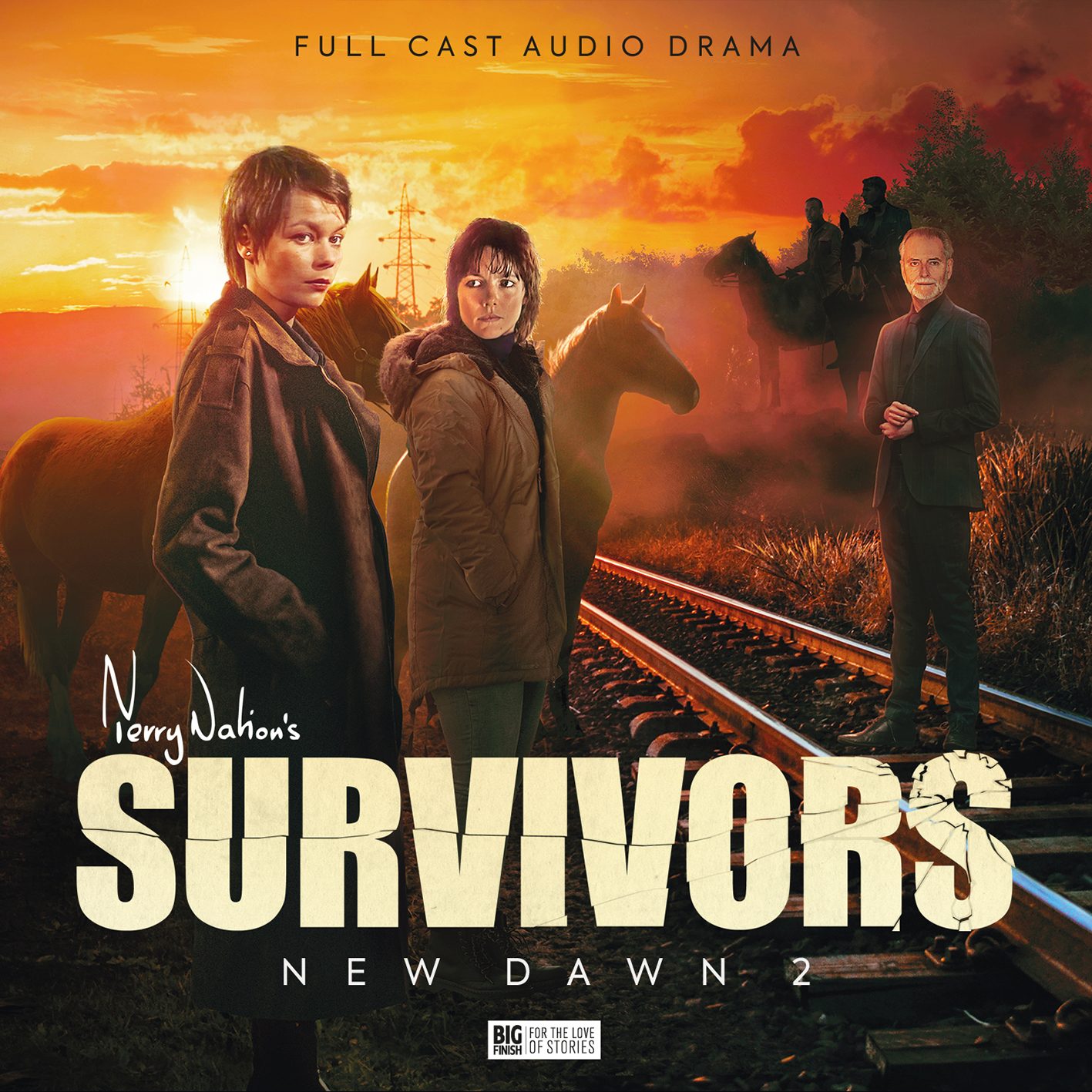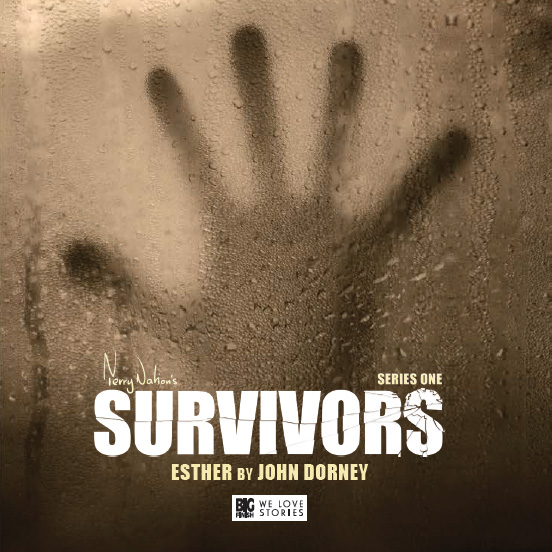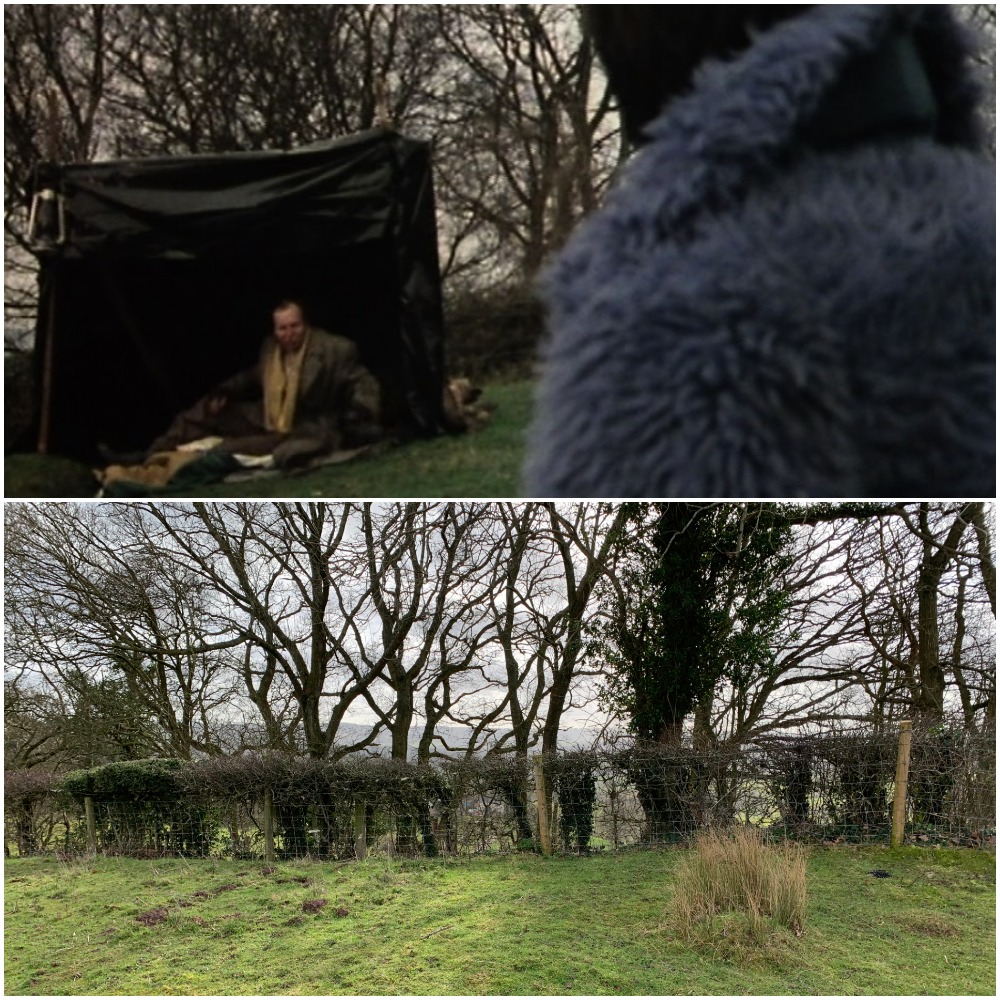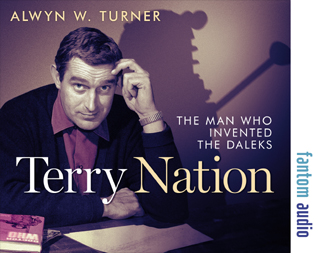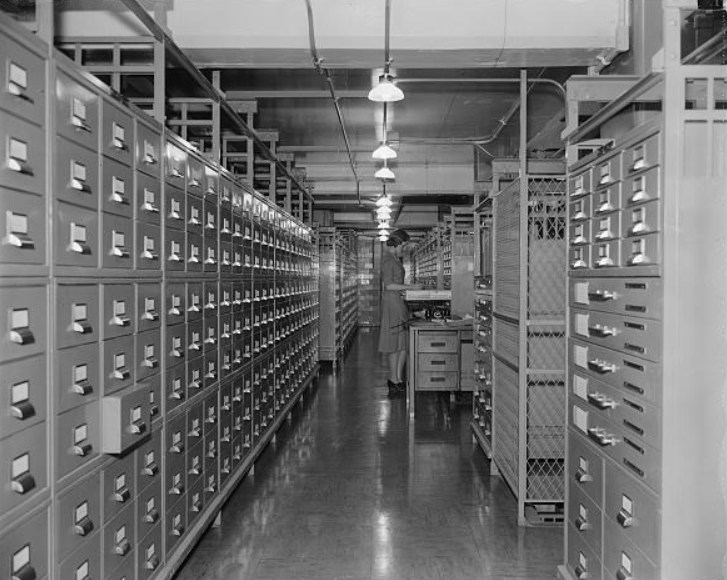
DURING THE WINTER months of 2019, the editor of this site was fortunate enough to be able to arrange a visit to the BBC Written Archives Centre in Reading, in order to consult the documents related to the production, broadcast and reception of the original series of Survivors.
The materials held at the Centre are accessible, on advance request, by writers and researchers who are under contract with a publisher or other approved organisation. As I was then working on a book focusing on an episode of Survivors for Obverse Books’ Silver Imprint series, I was able to secure approval for my visit.
When Andy Priestner and myself were working on the manuscript for The End of the World?, Andy visited the Archive and was able to review a number of documents related to the show. On this, my first visit, some 15 years later, I was able to confirm the full extent of the Survivors archive. Sadly, the quantity of Survivors files and folders is very limited; and together the BBC’s records only partially cover a small number of Survivors episodes.
Three different types of relevant Survivors documentation is held in the Archive: production files; Audience Research Reports; and episode scripts.
Production files
I had hoped that production files might be held for each and every one of Survivors’ 38 episodes. In fact, production files only exist in the Archive for two episodes from the second series: Birth of a Hope and Greater Love.
Those files hold a wide range of documents related to the production of those two episodes, including: filming location maps; timetables and shooting schedules; prop lists; special and visual effects orders; hotel accommodation bookings; cast and crew travel details; tutor arrangements for actors of school-age; correspondence with agents and property owners; guidance for the staff producing the episode’s on-screen credits; and quite a lot of ‘carbon’ copies of various expenses claims and settlements.
These files hold no notes from the scriptwriter, the director or the producer
Rich Cross
These files reflect the documentary trail of the production office, and the need of the show’s administrators to hold an accurate record of the timeline and of the BBC’s financial commitment on the episode. It’s the kind of logistical detail that the office could have been asked to report to the episode’s director or to series’ producer Terry Dudley.
This means that, while they contain many interesting nuggets, and little-known details about the minutiae of the production process, the picture they provide of the "making of" the episode is an incomplete and a largely procedural “back-office” one, which focuses on bookings, contracts, payments and cross-charges.
These files hold no notes from the scriptwriter, the director or the producer; nothing about the rehearsal process; no information about the work of the locations scout; no day-by-day diary of the actual shoot (as opposed to the pre-planned schedule); nothing about the editing process; and no reflections from any member of the cast and crew about what is was like to work on and be a part of the episode.
That said, it would still be hugely helpful to historians of Survivors were similar production files held for all thirty-eight episodes across the show’s three series - rather than just for the opening two episodes of series two.
This huge gap in the documentary record will either be the result of the show’s production team not seeing the value of ensuring that a comprehensive production history of the Survivors was passed on to the archives; or because the majority of that archive has been misplaced or disposed of in the years since the production wrapped in 1977. Filling these gaps would require the personal archives of production team members being bequeathed to, and accepted, by the BBC.
Audience Reaction Reports
One of the ways that the BBC assessed popular reaction to its programmes in the 1970s was through the Audience Reaction Reports. Volunteers representing a range of audience demographics (age, gender, occupation, etc.,) were recruited by the BBC to become part of a virtual ‘audience panel’. Using a variety of different techniques and technologies, the viewing habits and preferences of those viewers, and their opinions about selected BBC shows, were recorded.
This data was then compiled by BBC analysts into brief summaries that pulled together both quantitative data (such as how many watched the show, in whole or in part) and quantitative feedback (what viewers thought about different aspects of the show, including the overall score that they would give the show).
These Audience Reaction Reports (ARRs) were then shared with a programme’s production team and with commissioning and managerial bodies within the BBC. Positive ARRs were important to a show securing a much-sought-after positive reputation within the BBC and, alongside cumulative viewing figures, were an important factor in a series securing repeat transmissions and (for series and serials) a renewal.
These reports provide a fascinating insight into immediate viewer reaction to the screening
Rich Cross
ARRs were not commissioned for every programme, and not for every episode of a series. The ARRs cost money, time and effort to produce and as a result they were commissioned selectively. The file copies of the AARs for 1975-77 held in the archive seem to be pretty comprehensive, and it’s not a surprise that they were only requested for a small number of Survivors episodes.
Audience Reaction Reports for just four Survivors episodes are held at the BBC Archive Centre: The Fourth Horseman (S1, E1), A Little Learning (S3, E2), Bridgehead (S3, E5) and Power (S3, E12) - so there are none at all held from series two. Together these few reports still provide a fascinating (and contemporaneous) insight into immediate viewer reaction to the screening of these Survivors episodes by panel members.
The compilers of all AARs were scrupulous in their attention to providing a ‘balanced’ picture of viewer feedback: none of the numerous AARs that I consulted (for many different drama, documentary and comedy programmes) were entirely positive or wholly negative in tone.
Every one of them included a mixture of praise and criticism (“Some viewers enjoyed the X aspect of the programme, while others disliked it; some praised the Y and Z of the show, while others expressed their disappointment with those elements”). The AARs for the Survivors episodes share this meticulous commitment to even-handedness.
The panel members offer up both plaudits and brickbats for each and every show under scrutiny. Interesting in themselves, the fact that back in 1975-1977 some viewers were deeply unimpressed by Terry Nation’s foray into the post-apocalyptic realm is a useful corrective to the myth endlessly recycled by some modern day TV reviewers: that everyone in the 1970s agreed that Survivors was an instant classic! The documentary evidence confirms that not everyone did!
It seems unlikely that there are any further ‘missing’ Survivors ARRs waiting to be discovered. It’s probable that the copies held on file are the complete archive of this material for the series.
Episode scripts
The most comprehensive set of Survivors material held in the BBC Written Archives Centre are the scripts for the episodes: a full set of all thirty-eight telescripts is held. In the 1980s, as pressure of space became acute in the script section of the archive, scripts were transferred to microfilm (and print copies disposed of).
All of the Survivors scripts held in the archive are therefore available to review in microfilm format.
However, the type of Survivors script that, by default, has been stored by the BBC is different to that that fans of show (who've been fortune enough to get their hands on a script) will have seen.
In recent years, some Survivors scriptwriters have sold off their personal copies of Survivors scripts, bringing these documents into the public realm for the first time.
A full set of all thirty-eight Survivors telescripts is held in the BBC Written Archives Centre
Rich Cross
These copies have almost invariably been the rehearsal versions of the script: that is, the version submitted by the author and subsequently signed off (potentially in a revised version) by Terry Dudley (the series ‘unofficial’ script editor) and the episode’s director.
What's held in the BBC archives (at least in the cases that I checked) are the shooting scripts: that is, the finalised version reorganised into the sequence in which the episode was to be filmed or recorded.
For example, the copy of the script for Mad Dog, which scriptwriter Don Shaw auctioned off to fans a few years ago, was the rehearsal version (which laid out the episode in its broadcast sequence).
On file at the BBC Written Archive Centre is the shooting version of the Mad Dog script, used by director Tristan de Vere Cole and his team (which laid out, in order, the sequences to be shot, first, at Hampton Loade, then, at Ilam and, lastly, in Monsal Dale).
The pages of a shooting script are not just bound in a different order to the rehearsal version. The shooting script may include additional notes and information relevant to cast and crew added by the director.
This script archive remains an unparalleled resource for historians of the series, and it’s hugely reassuring that, in this instance at least, the library of Survivors material appears to be comprehensive and complete.
Archives of those who made Survivors
Because so few Survivors production files exist, any future visits to the BBC Written Archives Centre that I am able to arrange will focus instead on any material relating to the show in archives handed over to the BBC by individuals involved in bringing Survivors to the screen.
In some cases, producers, directors and other behind-the-scenes staff employed by the BBC deposited their personal papers from their professional lives into the corportation's archives.
There is certainly correspondence between Survivors producer Terry Dudley and other bodies within the BBC held on file, as it is material quoted in Alwyn W Turner's book on Terry Nation. It's likely that there are other records, relevant to the history of Survivors held in these and similar files.
The hunt for evidence in the files of the BBC Written Archives for new information about the making of Survivors can usefully continue.
There's a lot of information that's still to be unearthed. And in the words of Dr Bronson: "We must learn."
* The image of an archive seen above is for the purposes of illustration only, and is not a photo of the BBC archives. Photography is not permitted inside the BBC Written Archives Centre, and researchers have no direct access to the materials - which they request in advance from the archivist assigned to manage their visit.
Cite this web page
Cross, R. (2021). 'Filed away: Survivors material in the BBC archives,' [online] Survivors: A World Away, 31 January. Available at: https://www.survivors-mad-dog.org.uk/a-world-away/survivors_visiting_the_archives.php. Accessed on: 26 February 2026.
Current style: Harvard
TAGS

